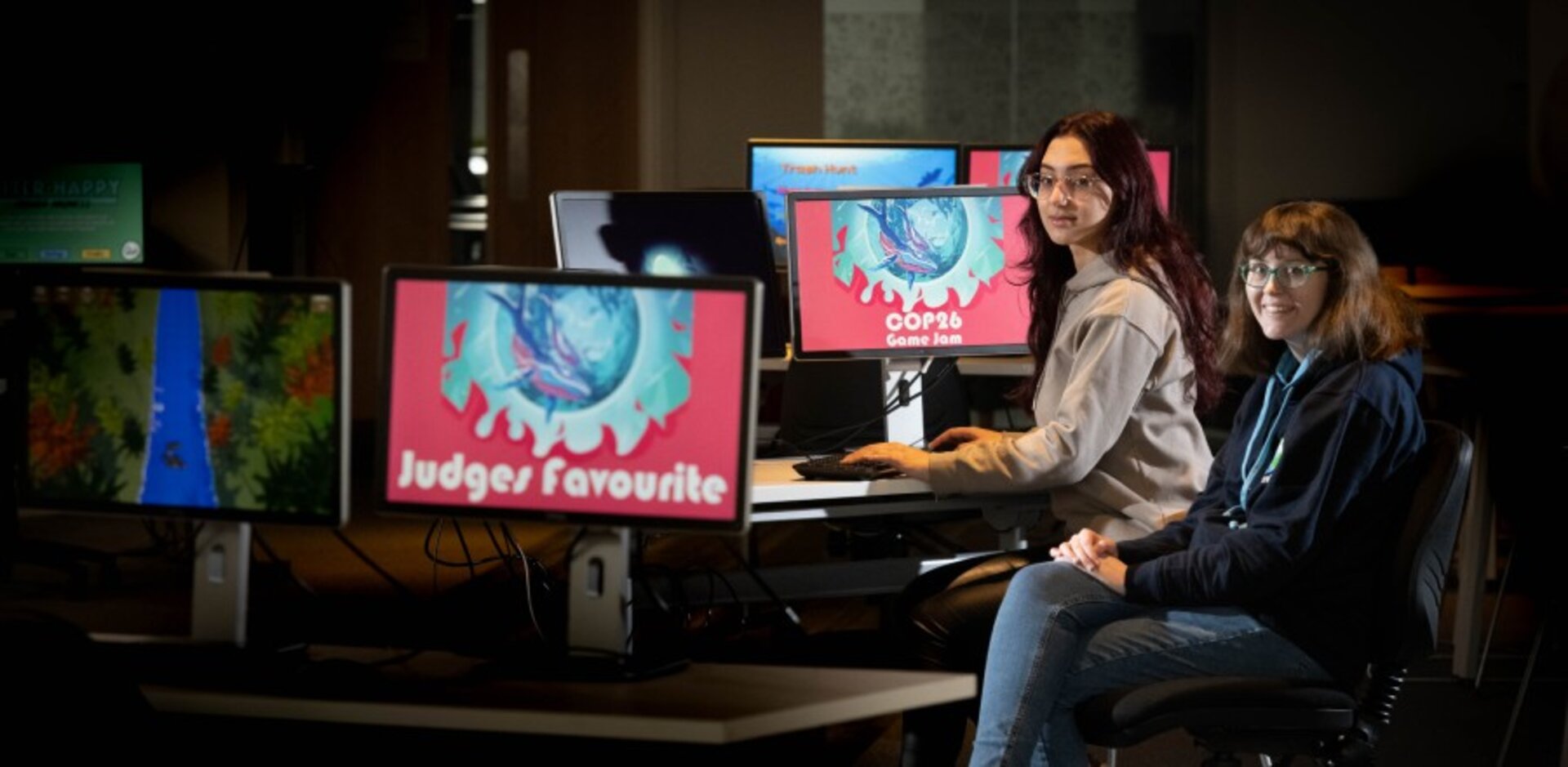Game for saving the planet

Visitors to Glasgow Caledonian University today experienced first-hand what a devastated planet earth might look and feel like thanks to a host of educational video games created by students.
The games, designed to teach players about climate issues and possible solutions, were available to play in the University’s Sir Alex Ferguson Library, and had been created last weekend during a 48-hour development marathon, organised as part of the institution’s COP26 activity.
Students from GCU’s game programmes (BSc Computer Games, BSc Computer Games (Art and Animation), BSc Computer Games (Design) and BSc Computer Games (Software Development) will participate, were armed with a brief to create games that raise awareness of climate change and its effects, or highlight possible solutions to solving or acting on climate change.
They were joined by students and game enthusiasts from the UK and across the world. A panel of videogame developers and experts from GCU’s Centre for Climate Justice decided the best games for demonstration.
The games on display were:
- Beaver Fever: A game that plays like Tetris and is about the reintroduction of beavers in the UK and the positive impact they can have in biodiversity through their dam building.
- Gusty’s Adventure: A story-based platforming game about a wind turbine who wants to see more of their family.
- Naeco: Highlights the issue of rubbish entering the water and the impacts it can have on aquatic life. In the game, the player has to collect this rubbish using a drone.
- Power the Coast: A game about managing offshore wind turbines and maintaining them.
- Recycle Master: A simple game about catching recyclable waste into the correct bin. There are 10 different wastes to recycle and remembering which bin maps to which button provides the challenge.
- The Lonely Wisp: A story-based game where humans have died off due to climate change and waste is left over in the world. The player is ‘Wisp’ and must clean up the land to let nature have a chance to recover.
Hamid Homatash, a lecturer across GCU’s games programmes, organised the event. He said: “These games are needed to show a creative perspective to an issue that is difficult to visual or imagine. It is easy for activists and scientists to state what will happen if we don’t change or act, but it’s very difficult to imagine what that world could look like or feel like.
“Videogames allow us to explore these ideas in a visual and interactive way, provoking emotional experiences in those who play them. These emotional experiences then have a direct impact on those people, and this raises awareness of the possible difficult realities ahead.
“Hopefully, this would help change people’s attitudes that normally wouldn’t be influenced by traditional forms of media. It is also a chance for a younger generation, the students, to think about how the world will change if we do not act, and for them to express their own opinions through this medium.”
Third-year Construction Management student Nagineh Azar, 21, and fourth-year Social Sciences student Catherine Mackie, 21, were really impressed with the quality of the games.
Nagineh said: “We really loved the games. This is a really great way to engage young people in the issues of climate change.”
Catherine added: “The games looked great and really good fun. It’s a new way of raising awareness of climate change and helping young people understand what is going as well as what they can do about it.”
To find out more about GCU at COP26, visit https://www.gcu.ac.uk/cop26.
